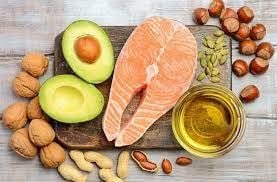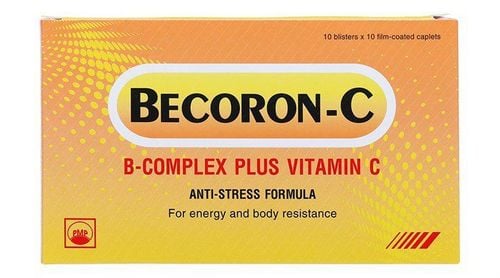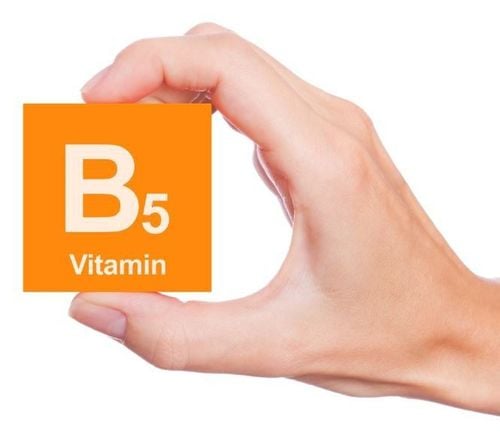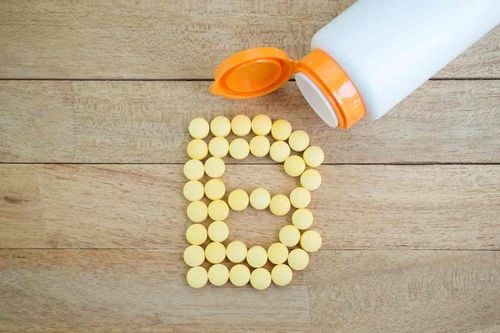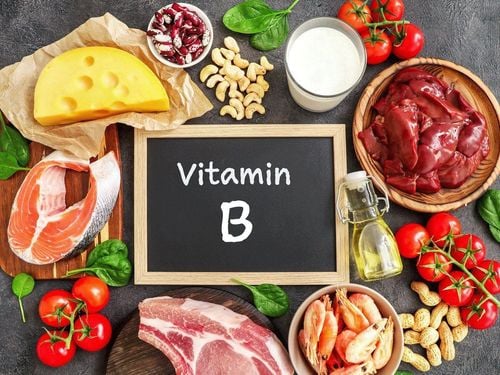This is an automatically translated article.
B vitamins play an essential role in maintaining the health of cells and keeping the body energized. In particular, taking vitamin 3b works to help the body use to get or create energy from the food eaten and helps form red blood cells, increasing muscle health. This article will help explain what vitamin 3b does and what role they play in everyday life.
1. Vitamin B1
B1, a water-soluble B vitamin, also known as thiamine.
Some evidence suggests thiamine is of good value for boosting the immune system, digestive problems, pain from diabetes, heart disease, and other conditions. This is achieved because the body needs vitamin B1 to break down consumed fats, proteins and carbohydrates into adenosine triphosphate (ATP), the main form of energy for cells to use.
In addition, the value of vitamin B1 also supports the health and function of the immune and nervous systems. If the diet does not provide enough vitamin B1, the person may be more likely to develop cataracts.
Thiamine is sometimes prescribed in supplement form to treat people with thiamine deficiency syndromes, including beriberi and neuritis, or pregnancy.
According to nutritional guidelines, the recommended daily value of vitamin B1 for adults is about 1 milligram per day. However, the amount of vitamin B1 will increase for women who are pregnant or breastfeeding.
The main source of vitamin B1 is from food, sometimes added to nutritional products, including fortified breakfast cereals, breads, noodles and rice and can also be found in supplement form. .
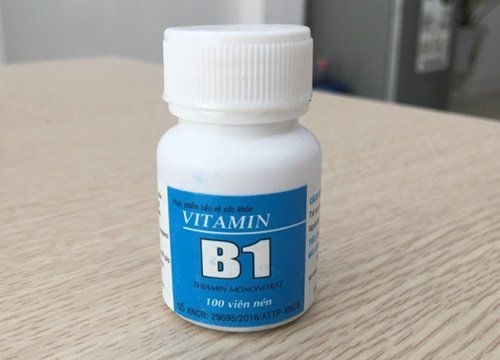
"Vitamin B1 trong viên 3b có tác dụng gì" là thắc mắc của nhiều người
2. Vitamin B6
Also known as pyridoxine, vitamin B6 is needed to synthesize mood-affecting hormones such as norepinephrine and serotonin. Like other B vitamins, vitamin B6 also helps support cellular energy metabolism. Furthermore, vitamin B6 is also good for immune function and brain development during pregnancy and infancy.
Vitamin B6 deficiency is associated with an increased risk of mood disorders, such as depression. According to recent studies, vitamin B6 helps regulate the body's level of homocysteine, an amino acid that has been linked to an increased risk of heart disease.
Diets rich in vitamin B6 are associated with a reduced risk of developing rheumatoid arthritis and age-related macular degeneration. Women who are deficient in vitamin B6 may experience more severe PMS symptoms.
The need for vitamin B6 is at least 1.3 milligrams in adults. This need will also increase for those who are pregnant or breastfeeding. On the other hand, vitamin B6 is also often recommended for those who are trying to conceive or are already pregnant. Therefore, vitamin B6 or 3b tablets work as fertility supplements. This is because vitamin B6 and ovulation are closely linked: High intakes of B vitamins, including B1, B2, B3, B6 and B12 have been linked to a reduced risk of ovulatory infertility. egg.
It appears that increasing vitamin B6 consumption does not pose any particular danger to fertility, but because of the complex interrelationships between different nutrients and processes, the outcomes of Taking too much vitamin 3b has any effect is still not known for sure.
However, in some cases, taking too many 3B tablets can lead to nerve damage in the hands and feet, resulting in loss of body movement control. Skin damage and stomach upset are also side effects of too much vitamin B6.
The richest sources of vitamin B6 include fish, beef liver and other organ meats, potatoes and starchy vegetables, and certain fruits. In addition, vitamin B6 is also added to some foods, including nutritious cereals.
3. Vitamin B12
Vitamin B12, also known as cobalamin, is needed for the production of DNA, hormones, and red blood cells that carry oxygen throughout the body. In addition, vitamin B12 also contributes to the normal functioning of the nervous system and the processing of fats and carbohydrates.Compared to B1 and B6, this B vitamin is especially important for the health of infants, children and adolescents. Along with vitamin B6, B12 lowers homocysteine levels, which may reduce the risk of heart disease.
Vitamin B12 deficiency can lead to megaloblastic anemia, dementia, weakness, nerve damage and loss of appetite. As a result, many vegetarians, vegans, and older adults who have difficulty consuming adequate amounts of vitamin B12 should be advised to take a daily vitamin 3B supplement. The recommended need for vitamin B12 is about 2.4 micrograms and increases for those who are pregnant or breastfeeding.
Food sources of vitamin B12 are animal meat, seafood, poultry and dairy products. For vegetarians, sources of vitamin B12 can be obtained from fortified foods such as cereals or through the use of supplements.
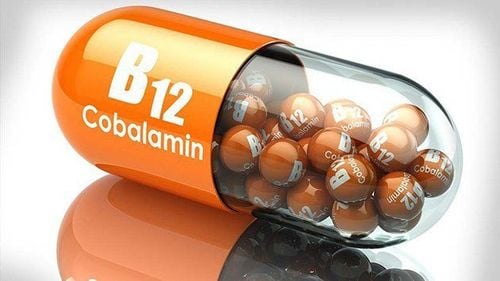
Vitamin B12 là một thành phần của viên viatmin 3B
4. How to supplement vitamin 3b like?
Vitamin 3b supplements include vitamins B1, B6 and B12. Accordingly, the use of 3B tablets depends on a number of conditions and lifestyles, which may affect the body's vitamin reserves and increase the daily need for vitamin 3B to help ensure that the body maintains adequate levels. important nutrients.
The abuse of alcohol will reduce the absorption of vitamin 3B; Therefore, alcoholics are often deficient in these vitamins. In addition, a vitamin B deficiency can also be the result of ingesting tapeworms from contaminated food that has not been fully cooked as the parasites take away nutrients from the body.
Vegetarians or those who follow a strict vegan diet that excludes animal products are often deficient in B vitamins, especially vitamin B12.
Pregnant and lactating women have a need for B vitamins, especially B12 and folate. Not getting enough of these vitamins can lead to deficiencies and possibly harm an infant.
However, some medical conditions make it difficult for the body to absorb B vitamins, including Crohn's disease, Celiac disease, HIV, and alcohol abuse. Therefore, it is necessary to consult a dietician for guidance on a suitable vitamin-fortified diet of B group as well as to choose 3B tablets that are easier to absorb.
In a nutshell, vitamins B1, B6 and B12 each perform a variety of roles supporting the body's metabolism and helping the body produce essential substances, such as neurotransmitters and red blood cells. Accordingly, the body always needs a regular supply of all three vitamins and fortunately they are available from many different foods so a deficiency is rarely an issue. However, in high-risk subjects, learning what vitamin 3b does will help timely and effective supplementation.
Please dial HOTLINE for more information or register for an appointment HERE. Download MyVinmec app to make appointments faster and to manage your bookings easily.




